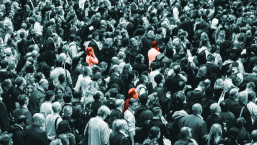...but it doesn't necessarily want you to be free.
Since Cameron Camp and I have written here and here about the implications of the UK government's meditations on curbing civil unrest by curbing social media services, it's interesting to see that the estimable Kim Davis, who previously categorized UK Prime Minister David Cameron's pronouncements as bluster, has also expanded on Nicole Ferraro's observations to point out that law enforcement has done pretty well out of the social media in the aftermath.
He - indeed they - are absolutely right. When I put together some notes for ESET's August ThreatSense report, which I imagine will be out in a few days, I commented:
Massive misuse of the social media in pursuit of criminal activity is just too in-your-face to be ignored: consider, for example this more-or-less random and geographically widespread selection of news items relating to arrests and/or court appearances in the UK.
And backed it up with half a score of stories where would-be rioters had used social media to communicate and faced court appearances as a result (just the first page or so of a highly productive Google search, not including the spam and BlackHat SEO). Clearly, Facebook's love of sharing your data works pretty well for law-enforcement agencies in scenarios like this. But therein lies a future debate about privacy and the liberty of the subject. As Davis remarks:
"The hard work of evaluating how it [social media] is being used, by those who would enforce the law as well as those who would break it, now needs to begin."
David Harley CITP FBCS CISSP
ESET Senior Research Fellow




